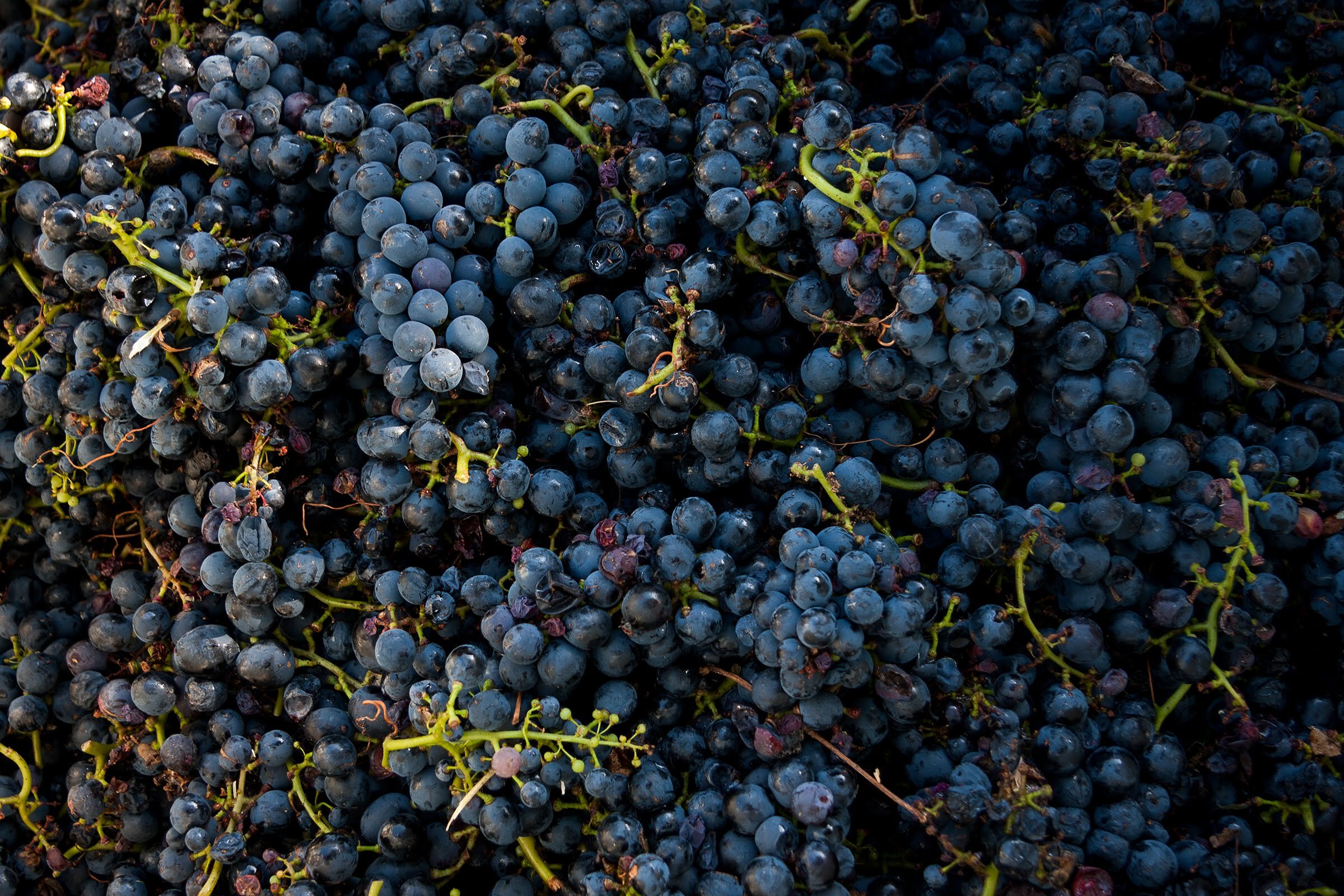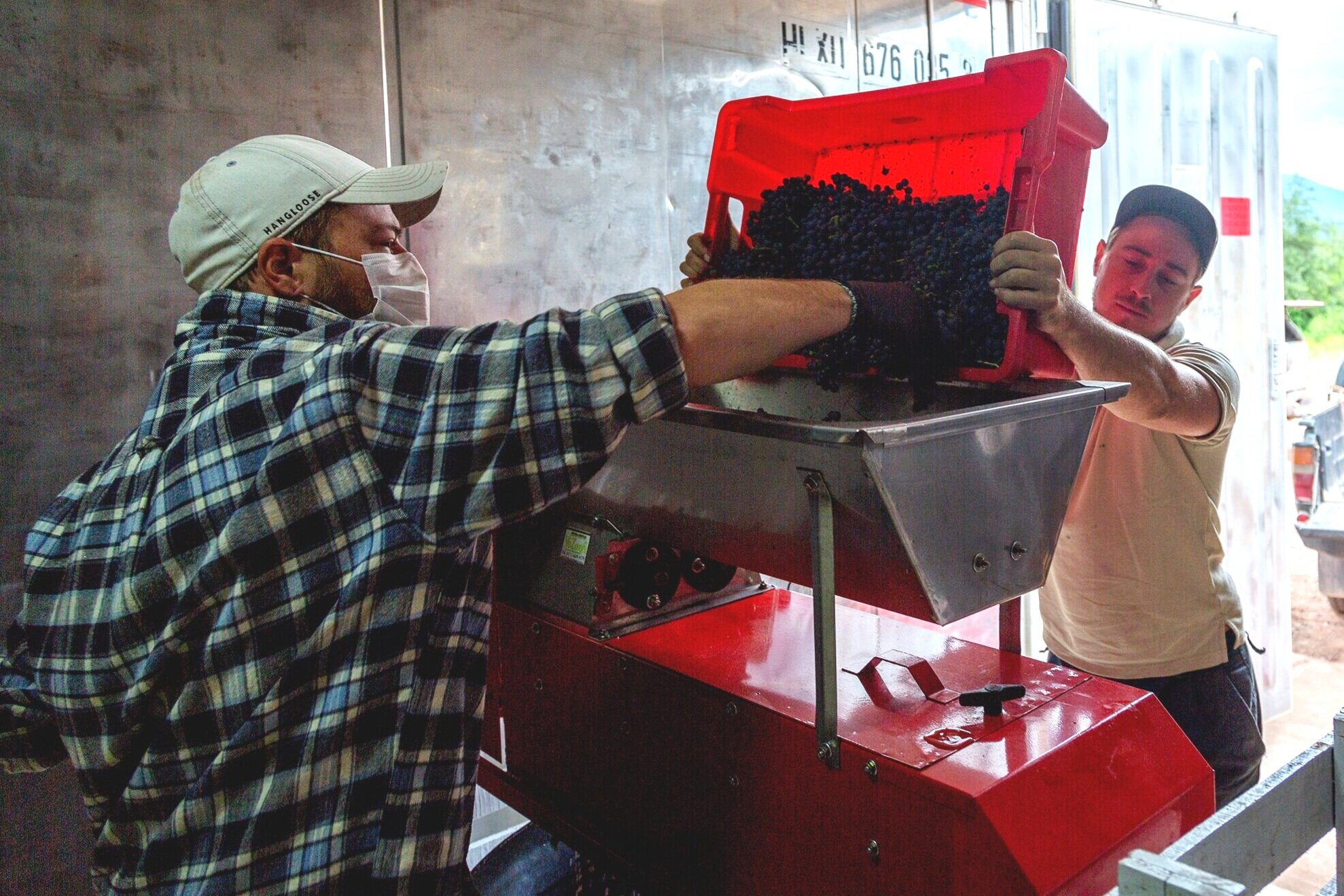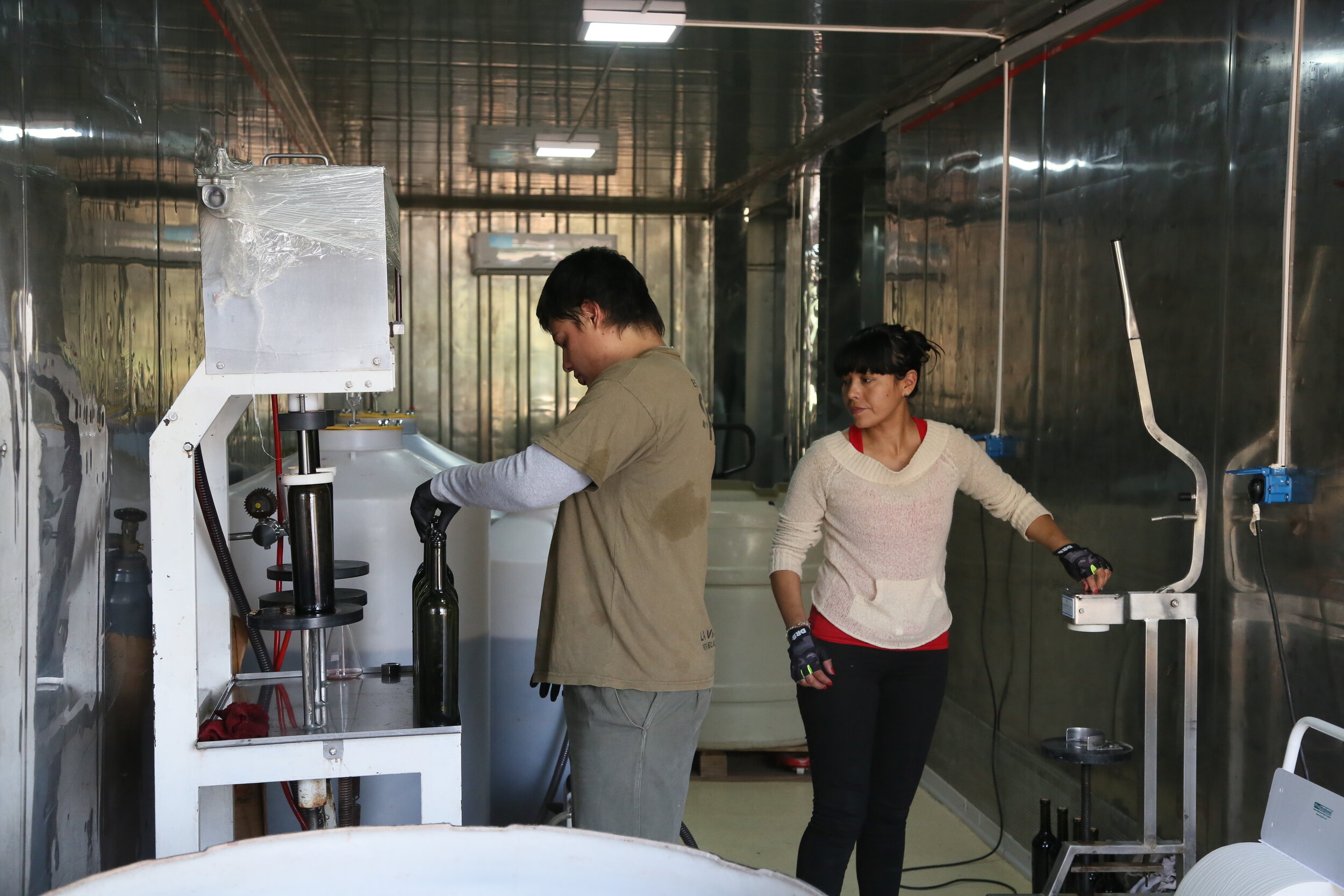Wine Doesn’t Wait For a Pandemic
This winter, after South America’s first solar winery was built and the grapes harvested from Condor Valley’s vineyards, we began the initial fermentation process in large, open tanks covered with cotton. The new winery was functioning smoothly and it was already a huge relief to remove the logistics and labor of transporting the grapes after harvest, which we had been doing for two years.
But then, the world threw everyone a curve ball - the global COVID-19 pandemic.
While life at Condor Valley during quarantine is not much different from the regular day to day, it wasn’t so smooth for our wine. When Argentina shut down, a crucial element we needed for the next step of the fermentation process got stranded thousands of miles away. This year, we had harvested twice as many grapes as in 2019 and we had just ordered special new sealed fermentation tanks that were now stuck in Buenos Aires waiting to make their way to Condor Valley.
When at first the quarantine was expected to last only two weeks, there were rumors that in some states, the government was allowing transport for wine-related industries as they are such a crucial part of Argentina’s economy. However, as the quarantine grew longer, having to dump our wine became a real possibility.
One by one each varietal was nearing the small window of time when they need to be pressed to enter the second stage of fermentation. And none of us could fathom having to pour these juices back into the soil. So, our wine maker Bruno Pekarek figured out which ones to prioritize and press and in the meantime was able to procure alternative tanks to keep the wine until the permanent tanks arrived from Buenos Aires.
This step is one of the parts of wine making that is very exacting when it comes to calculations - it’s like that math problem when you have to figure out how to get 3 ounces of water measured from a 5-ounce and a 2-ounce cup. But do that on a scale of 8,000 liters of seven batches of precious wine to be distributed among more than a dozen containers of varying sizes.
And this can’t just be a “let’s see how it goes” operation. Calculations need to be made so that the wine fills each container right to the brim to allow them to be vacuum sealed without any oxygen. If oxygen is present, the acetonic acid will start to grow in the wine past desirable levels. And small overflow tanks need to also be filled to refill the larger ones while sediment is removed in stages.
Somehow – probably by magic – Bruno was able to figure out how to distribute the wine among the available containers. And for the small overflow ones, we ended up improvising with large water containers that we squeezed to create a vacuum before sealing. But the tanks still needed to arrive before the first round of desedimentation.
Thankfully, just in the nick of time, Condor Valley cofounder Martin Pekarek managed to secure the needed papers to allow for transportation. With papers in order to get through the quarantine check points, Bruno drove our 1973 Mercedes truck to Salta to pick the tanks up at the transportation deposit point. And finally, the tanks were able to make their way to Condor Valley!
Condor Valley’s wine maker Bruno is very excited to see the wine tanks arrive just in time
The day they arrived, our team eagerly unwrapped them, cleaned them out, and put them straight to work to ensure a balanced fermentation.
Creative, collective problem solving is part of life for us here at Condor Valley. And mastery of improvisation always proves itself to be the most important ingredient.
The inaugural fermentation in our newly built solar winery took place on April 1, 2020 right in the middle of the global pandemic. We can’t wait to taste the wine that came out of this immense project. And we really hope that very soon, the borders will open back up and travelers can join us here at Condor Valley Estate & Winery to sample the fruits of our labor.






